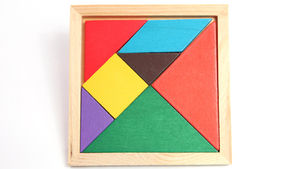
Jatinder Koharki

Watch the short video and read the full post below. Leave a comment!
Welcome to the third post in my seven-post blog to keep the middle-aged mind sharp, given all the conveniences and shortcuts tempting us to hit pause on our own brains. I changed “seven-week” to “seven-post” because this third post is coming four weeks after the second one. Two weeks in Switzerland followed by two weeks of cold/flu left me mentally foggy for days.
All the more reason to keep this ageing mind as sharp as possible. Have you ever been in the middle of a sentence and completely lost your train of thought? This happens to everyone at every age, but the frequency with which this occurs has been increasing each year since I turned 40. More than two years later, I resent what I used to think of as just a helpful gesture.
How often do you finish someone’s sentence when they get stuck? “I think I’m really in the mood for some…uh” trails off your spouse or parent or friend. After counting to three, maybe two, you jump in with “spicy ramen noodles?” or “big mac?” or whatever it was you knew the other person was about to say but forgot the words for it. You were just being considerate.
Well, stop it! You are not helping! My chest used to puff up with pride too after I helped someone finish a sentence or remember a word that had accidentally dropped out of his or her head. It was only when I started to forget more frequently, and others started jumping in to help me, I realized I would rather finish my own goddamn sentences thank you very much!
As a result, I have grown more cognizant of others’ forgetfulness and more patient about letting them remember on their own before jumping in to help. Instead of three, or maybe two, these days I will count all the way up to ten. If the person requests help, then I am happy to oblige. Otherwise, I find myself waiting longer and longer before finishing someone’s thoughts.
After all, it’s only polite. When I remember something on my own after being stuck for a few seconds, I feel a strong sense of pride. “Yes! I’ve still got it!” says my brain. When someone helps me remember, without waiting or letting me ask for help, I feel a strong sense of doubt. “Would I have remembered this without help?” asks my brain. I prefer the former to the latter.
Ask anyone. I am confident (fairly) that majority of the people you ask will agree with me. Besides, I can’t help but wonder. If I remember my forgotten words without help more frequently, will that decrease the frequency with which I forget them? If only that were true. Age-related forgetfulness is too real to ignore. So, finish your sentences. Just not everyone else’s.
The article below contains techniques to help with memory changes. Learning a new skill, following a daily routine, exercising and eating well work best for me. What about you?
Memory Problems, Forgetfulness, and Aging | National Institute on Aging
Disclaimer: This content is neither advice nor instruction. Medical or otherwise.
Related Posts
Copyright © Book for Every Nook Publications LLC. All Rights Reserved.





